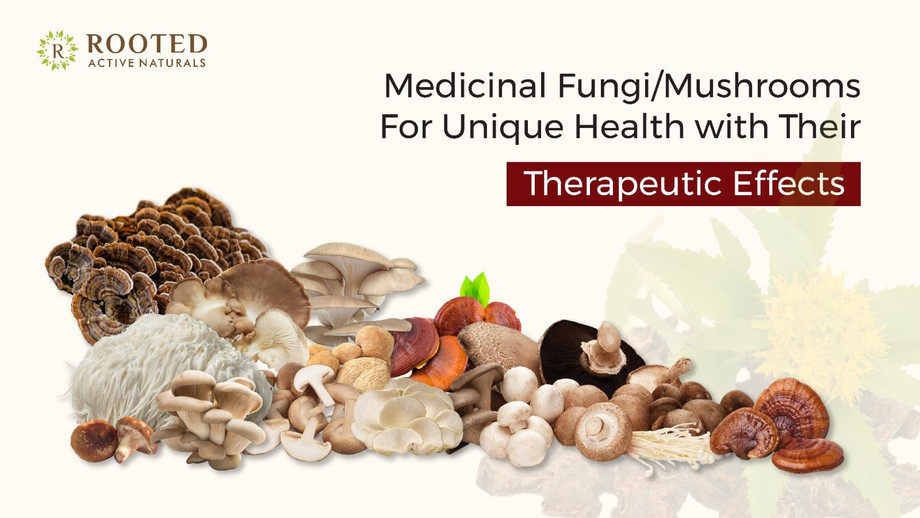Fungi have long been recognized for their medicinal properties, with their use dating back to ancient times in traditional medicines of cultures around the world. Modern science is uncovering fungi's therapeutic potential, leading to a renewed interest in medicinal mushrooms.
Medicinal Mushrooms, also known as Medicinal Fungi, are those that have been studied and found to have health-promoting properties. These mushrooms contain bioactive compounds such as polysaccharides, terpenoids and phenolic compounds that are responsible for their medicinal effects.
Medicinal Fungi and their Benefits:
One of the most well-known medicinal mushrooms is Reishi, also known as Lingzhi, which has been used in traditional Chinese medicine for centuries. Reishi contains triterpenes, which have been shown to have anti-inflammatory and immunomodulatory effects, making it a popular choice for immune system support. It is also used for its calming and stress-reducing properties.
Another one among the popular medicinal fungi is Chaga, which grows on birch trees and has been used in traditional Siberian medicine for its anti-inflammatory and anti-cancer properties. Chaga contains beta-glucans, which are known for their immune-boosting effect, as well as antioxidant compounds that protect against cellular damage.
Cordyceps Militaris is another medicinal fungus that has gained attention for its potential health benefits. It grows on the larvae of insects and has been used in traditional Chinese medicine for its energy-boosting and anti-fatigue effects. Cordyceps contains cordycepin, a compound that has been shown to have anti-cancer and anti-inflammatory properties.
Turkey Tail is one of the best medicinal fungi that has been studied for its therapeutic potential. It contains polysaccharides that have been shown to enhance the immune system and may have anti-cancer properties. Turkey tail is sometimes used in combination with other medicinal mushrooms to create synergistic effects.
Lion’s Mane is also considered one of the best medicinal fungi that have been studied for its potential cognitive benefits. It contains compounds that have been shown to stimulate nerve growth and may have neuroprotective effects. Lion’s mane is often used for cognitive enhancement and to support brain health.
In addition to these popular medicinal fungi, there are many others that have been studied and found to have health-giving properties. These include Maitake, Shiitake, Oyster and others. Each mushroom contains a unique combination of bioactive compounds that may have specific therapeutic effects.
Consumption
Medicinal mushrooms can be consumed in a variety of forms- capsules, powders, teas and tinctures. Some people also choose to incorporate them into their diet by adding them (the powder mainly) to soups, stews and other dishes. However, it is important to note that some medicinal fungi (mushrooms) may interact with certain medications or have contraindications for certain health conditions. It is always best to consult a healthcare provider before incorporating medicinal fungi into your healthcare regimen.
Conclusion:
In conclusion, Medicinal Mushrooms have a long history of use in traditional medicine and are now gaining attention from modern science for their therapeutic potential. With their unique combination of bioactive compounds, they offer a natural way to support health and wellness. However, it is important to approach their use with caution and consult a healthcare provider before use, especially if you have any underlying health conditions or are taking medications.

